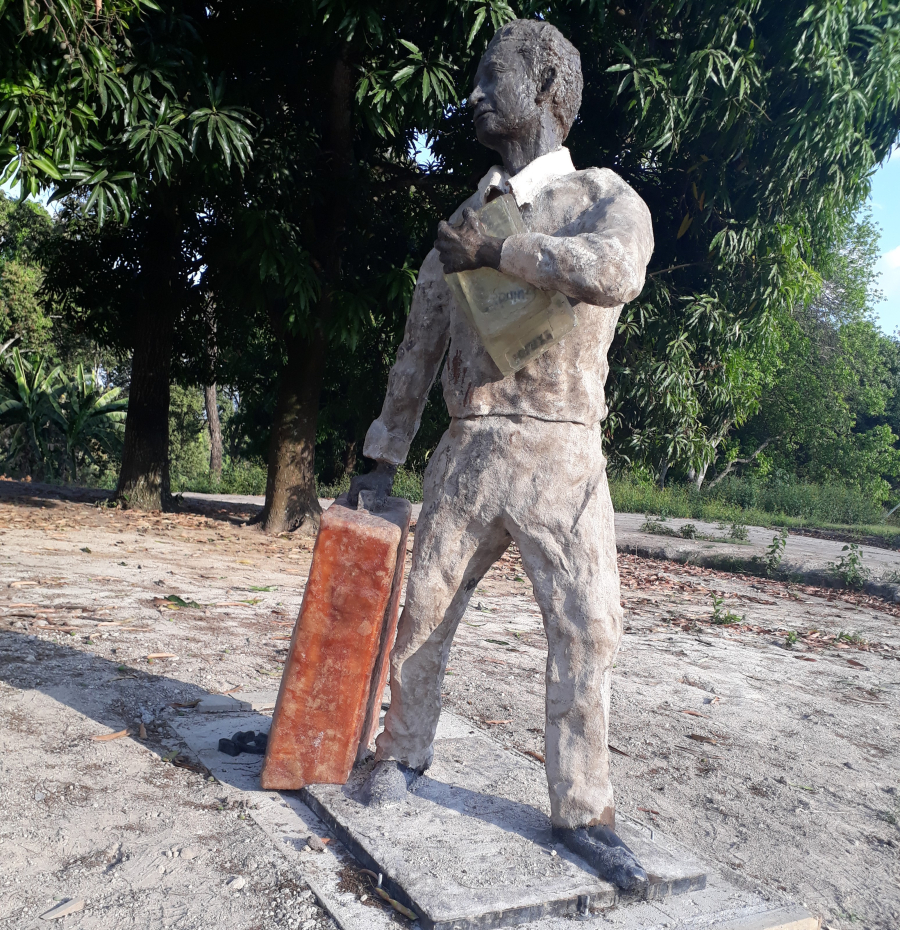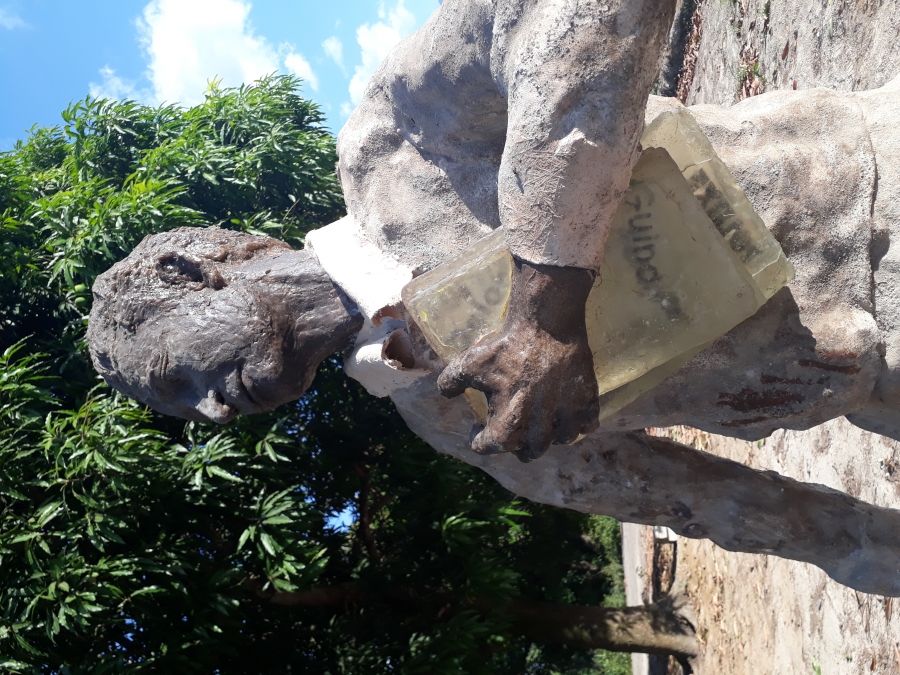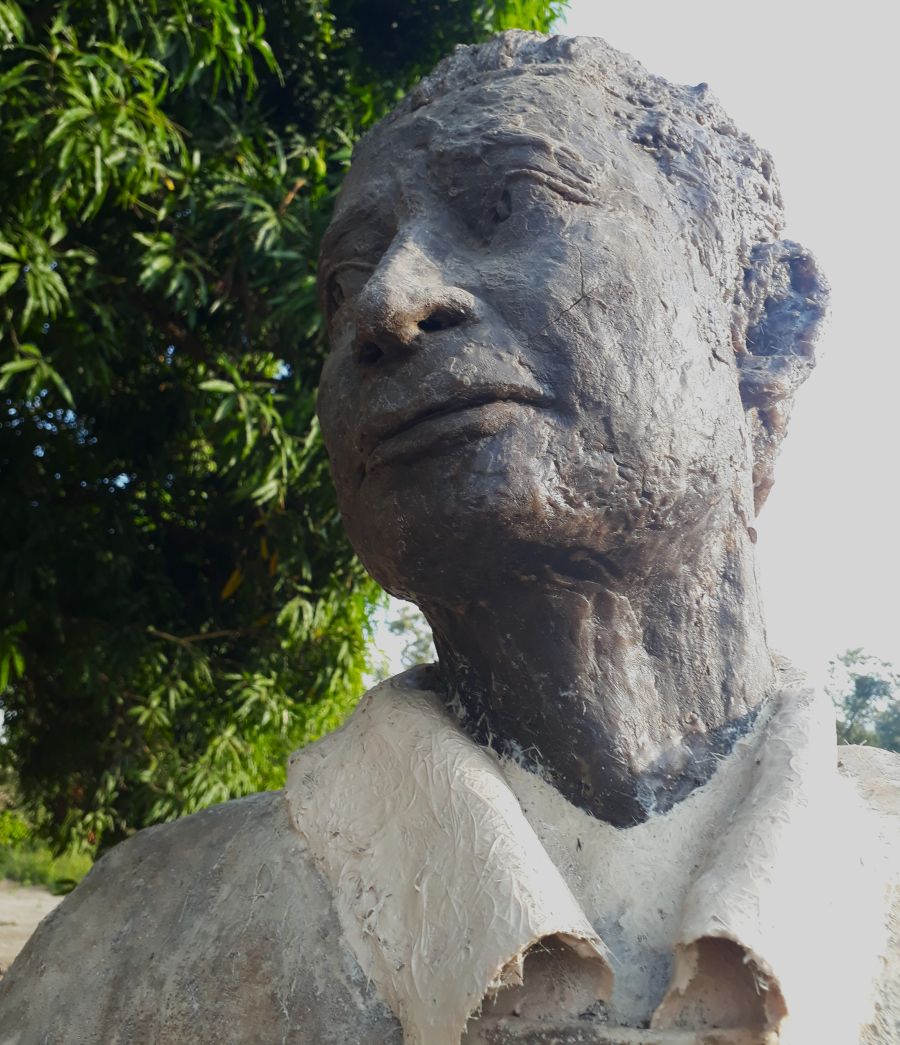Dr. José Rutilio Quezada, a successful involuntary exile Fundación del “Corazón del Padre” Quezaltepeque, El Salvador November, 2019

I have
always admired Dr. José Rutilio Quezada. We are true friends. We have been
collaborators and co-conspirators on various projects during our lives.
No conventional portrait would have been appropriate for a life so full of twists and turns, varied roles, and ups and downs. So, I have chosen to present Rutilio as a middle-aged man who is forced to leave the country, the community, and the farm that he loves so much. This figure represents a past, present and future, all together. I have tried in this sculpture (which is more of a narrative than a portrait) to provide a dynamic mini biography of a remarkable man at a crucial moment in his life. Here, his future projects have not yet crystallized, but he can no longer carry on with his past. Going into exile in war-ravaged times to protect his family, Rutilio is melancholic, or at least nostalgic, but he remains optimistic. When problems arise, Rutilio has never complained. Rather, he always constructively and productively deals with his problems, even one as huge as involuntary exile.
Here Rutilio heads north, dressed for the cold, but he can't help but look back once more to capture the essence and details of the Salvadoran tropical reality that will be so important in the books that are still just concepts, mere subconscious possibilities.
A brief note about the materials used in this sculpture: It is not bronze, nor stone, wood, or other conventional material. This sculpture is made from the soil of Quezaltepeque, the place of his birth and his landmark. It is made of dust, of the volcanic ash that is born from the cataclysmic violence that underlies all life in El Salvador.
While this sculpture pays tribute to a truly deserving individual, it is also intended to commemorate the millions of Salvadorans, Mesoamericans, and people - women and men, girls and boys - from other tropical nations who have been forced by their home societies to emigrate. Like Rutilio, these millions fled, adapted, raised families, and succeeded in other social contexts. They built productive lives and left their legacies. These other involuntary exiles dedicated their lives to making the world a better place. This statue honors them all. I admire you all.


Find out more in 100 People who deserve monuments


